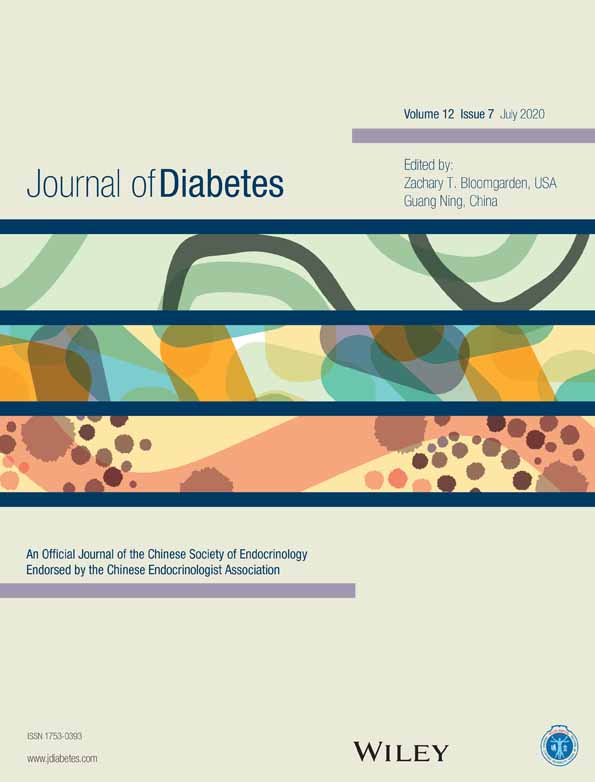Differential sensitivity of human islets from obese versus lean donors to chronic high glucose or palmitate
肥胖和消瘦捐献者的胰岛对慢性高糖或棕榈酸盐的不同敏感性
Funding information: Centre Hospitalier Régional Universitaire de Montpellier; Juvenile Diabetes Research Foundation, Grant/Award Number: 3-RSC-2016-162-I-X; University Montpellier, Grant/Award Number: BQR 2011; Montpellier University Hospital, Grant/Award Number: AOI-2010/UF8687
Abstract
enBackground
Due to the shortage of multi-organ donors, human pancreatic islet transplantation has now been extended to islets originating from obese subjects. In this study, our aim is to compare the respective sensitivity of human islets from lean vs obese donors to chronic high glucose or high palmitate.
Methods
Human islets were isolated from pancreases harvested from brain-dead multi-organ donors. Islets were cultured during 72 hours in the presence of moderate (16.7 mmol/L) or high (28 mmoL/L) glucose concentrations, or glucose (5.6 mmoL/L) and palmitate (0.4 mmoL/L), before measurement of their response to glucose.
Results
We first observed a greater insulin response in islets from obese donors under both basal and high-glucose conditions, confirming their hyperresponsiveness to glucose. When islets from obese donors were cultured in the presence of moderate or high glucose concentrations, insulin response to glucose remained unchanged or was slightly reduced, as opposed to that observed in lean subjects. Moreover, culturing islets from obese donors with high palmitate also induced less reduction in insulin response to glucose than in lean subjects. This partial protection of obese islets is associated with less induction of inducible nitric oxide synthase in islets, together with a greater expression of the transcription factor forkhead box O1 (FOXO1).
Conclusions
Our data suggest that in addition to an increased sensitivity to glucose, islets from obese subjects can be considered as more resistant to glucose and fatty acid excursions and are thus valuable candidates for transplantation.
摘要
zh背景
由于缺乏多器官供体, 人胰岛移植目前已衍生到肥胖者来源的胰岛移植。在这项研究中, 我们旨在比较瘦人和肥胖者的胰岛对慢性高糖或棕榈酸盐的敏感性。
方法
从脑死亡的多器官捐赠者的胰腺中分离胰岛。胰岛在中等浓度(16.7 mmol/L)或高浓度(28 mmol/L)葡萄糖培养基中, 或是葡萄糖(5.6 mmol/L)和棕榈酸盐(0.4 mmol/L)存在下培养72h, 然后测定其对葡萄糖的反应。
结果
我们首先观察到肥胖捐赠者的胰岛在基础和高糖条件下都有更大的胰岛素反应, 证实了其对葡萄糖的高反应性。但当来自肥胖捐赠者的胰岛在中高浓度葡萄糖存在的情况下继续培养时, 胰岛对葡萄糖的反应则保持不变或略有降低, 这与在瘦的捐赠者中观察到的相反。此外, 用高棕榈酸培养后的肥胖捐赠者胰岛也比瘦捐献者的对于葡萄糖的胰岛素反应减少得少。这种对肥胖者胰岛的部分保护作用, 与较少诱导一氧化氮合成酶有关, 以及转录因子FOXO1的较高表达相关。
结论
我们的结果表明, 除了对葡萄糖的敏感性增加外, 肥胖者的胰岛可以被认为对葡萄糖和脂肪酸剧增更有抵抗力, 因此是有价值的移植候选者。
CONFLICT OF INTEREST
The authors have no conflict of interest.




